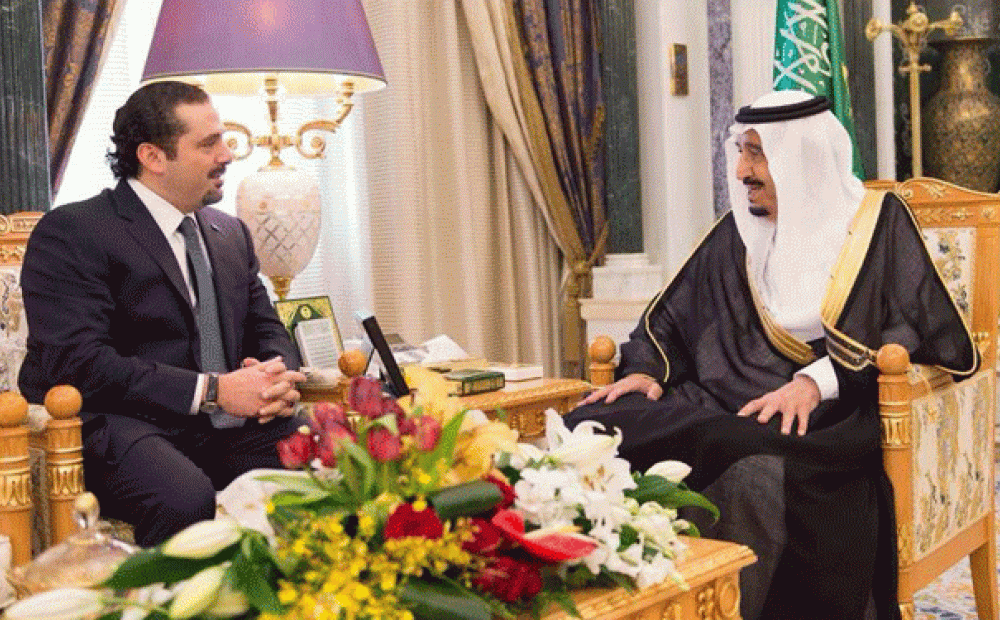Lebanon in Crisis? The Impact of the Hariri Resignation and the Saudi-Iranian Cold War

The resignation of Prime Minister Saad Hariri is threatening again to plunge Lebanon into political and economic crisis or worse. A number of developments, including longstanding but growing tensions between Iran and Hezbollah and Saudi Arabia may presage a deteriorating regional situation that could draw Lebanon as well as Israel into the fray.
Three veteran observers of Lebanese and regional politics analyzed these and related developments on the precipice of another period of potential turbulence in Middle Eastern politics.
This event is being presented as part of the Lebanon Ideas Forum, a partnership between the Middle East Program at the Wilson Center and Safadi Foundation USA.
Key Quotes
Aaron David Miller
“In a normal world... a secretary of state’s comments might carry some influence. In this case, I think they carry almost none, and until the president and whoever is crafting – DoD, most likely Mr. Mattis – our approach to Lebanon, I think that any threats from the United States are meaningless.”
“Again, I ask the question, what kind of assets, other than economic boycotts, do the Saudis really have to compete with Iran and Hezbollah in Lebanon, in Yemen, in Syria, and Iraq? They just don’t have the horses to pull the wagon.”
Hanin Ghaddar
“[The land bridge] will unify the Shia. For people who are supportive of Hezbollah, this will definitely be a big deal for them, but people who already have questions and doubts about Hezbollah’s role in Syria, about the Iranian role in Syria – for them, this is going to be very important for their Shia identity. In a way, it’s dangerous, because every Shia along the bridge in each of these countries will be a Shia first.”
“This is not going to be another war between Hezbollah and Israel. This is going to be a war against Iran… An attack against Hezbollah means the Quds Force army in the region will be one. It’s something that we need to take into consideration.”
Bassel F. Salloukh
“In Beirut, the main question is: if we are now heading to a kind of a confrontation in Lebanon, then what are the possible scenarios? I think it ranges over a whole spectrum of anything from complete political paralysis, whereby Hariri might be allowed to come back just to offer his formal resignation, but he would not have a new cabinet formed, and this would put the country on political pause, if not paralysis, for the foreseeable future; proxy, sectarian conflict in the country, which would be triggered by, you know, agents or fifth columns; or – and this is the fear of most Lebanese – that Lebanon might become what it was in the period immediately after the assassination of Rafic Hariri, with the bombings and insecurity and so on.”
Paul Salem
“The position from the State Department was strong support for the prime minister, for the Lebanese army, for the Lebanese state, indirectly sort of going against the Saudi position, I would say, on this, but it’s still an open question – where will the president end up on this question?”
“I think scenarios for Lebanon are generally… quite bleak. I don’t expect Hezbollah or Iran to back down. I don’t think their investment in Yemen is working and it is a historic, strategic weak point that they’ve been able to exploit. It is tremendous leverage that they’re going to be able to build against Saudi Arabia that they can hold over them for decades to come. I don’t think they’re going to give it up for, you know, “Lebanese stability”, so I think we’re going towards some kind of a showdown.”
“We’re really in a completely new Middle East, which will not be a new stability; it will be a new series of confrontations and wars. We’ve already seen the Sunni-Shia wars that have been going on. They will continue to go on for years or decades to come. And obviously, Israel is not comfortable with any of this and we’re going to see some of that as well.”
Speakers

Inaugural Friedmann Visiting Fellow, Washington Institute for Near East Policy
Moderator

Hosted By

Middle East Program
The Wilson Center’s Middle East Program serves as a crucial resource for the policymaking community and beyond, providing analyses and research that helps inform US foreign policymaking, stimulates public debate, and expands knowledge about issues in the wider Middle East and North Africa (MENA) region. Read more
